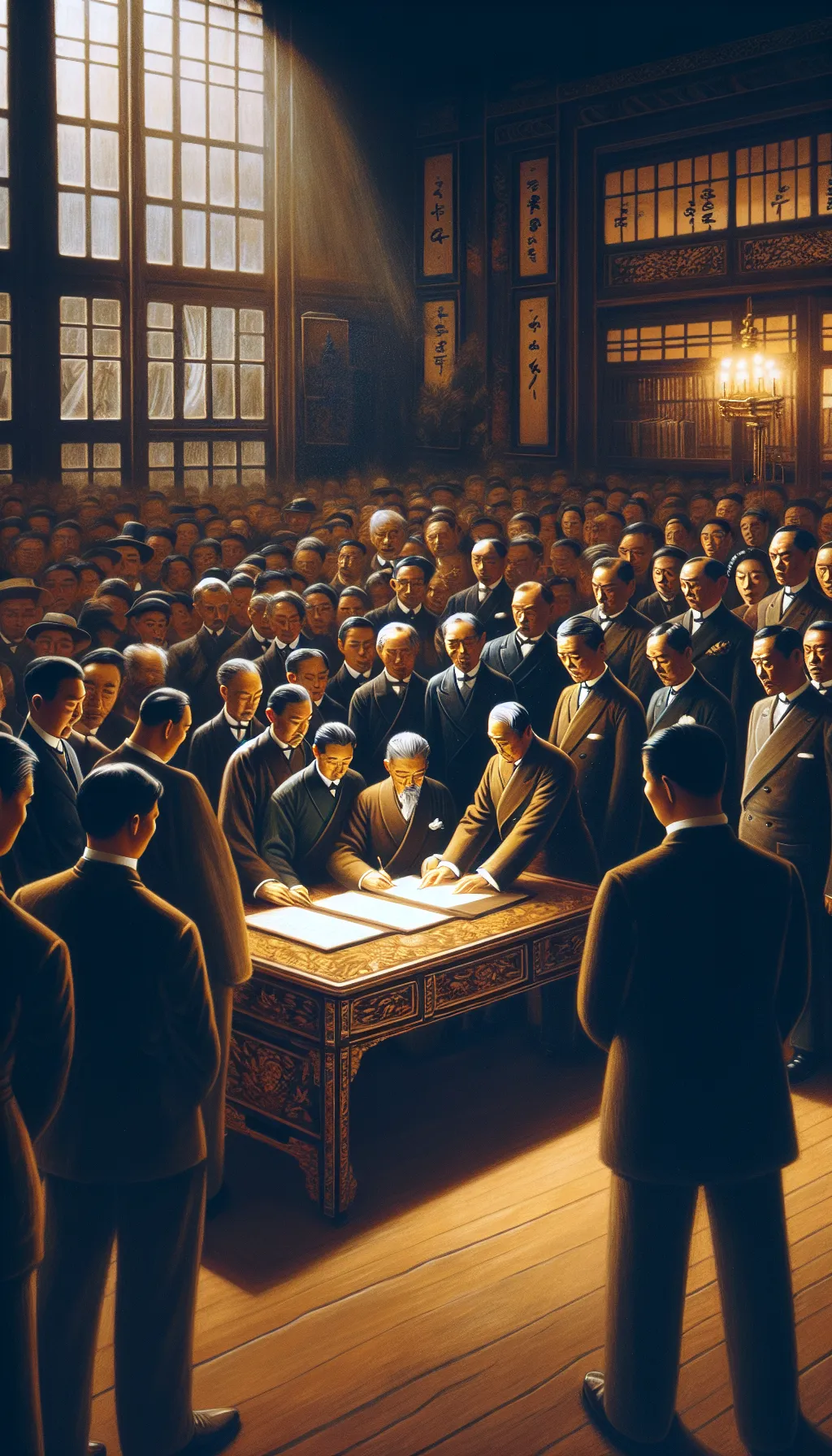Japan – The Treaty of Shimonoseki: A Turning Point in East Asian History - 1895
TLDR;
- Event: The Treaty of Shimonoseki was signed on April 17, 1895, ending the First Sino-Japanese War and marking a shift in East Asian power dynamics.
- Terms: China ceded Taiwan and the Pescadores Islands to Japan and renounced suzerainty over Korea, significantly weakening its regional influence.
- Impact: The treaty signaled Japan’s emergence as a major imperial power and set the stage for future conflicts in East Asia.
- Legacy: The treaty reshaped the geopolitical landscape, with its effects influencing regional tensions and power balances for decades.
–
Story
The ink was barely dry on the Treaty of Shimonoseki when the world felt the tremors of a new era. On April 17, 1895, in the quiet town of Shimonoseki, Japan, a document was signed that would forever alter the balance of power in East Asia. The First Sino-Japanese War had ended, but its consequences were just beginning to unfold.

The war had been a brutal clash between the declining Qing Empire and the rapidly modernizing Japanese Empire, each vying for dominance in the region. Japan, modernized and militarized, had emerged victorious, and the treaty was its prize.
The terms were harsh: China was forced to cede Taiwan and the Pescadores Islands to Japan, and, perhaps more significantly, to renounce its suzerainty over Korea, leaving it vulnerable to Japanese domination.
For China, the treaty was a humiliating blow, a stark reminder of its waning power. For Japan, it was a triumphant step onto the world stage, signaling its arrival as a formidable imperial power.
The Treaty of Shimonoseki was more than just a peace agreement; it was a turning point that reshaped the geopolitical landscape of East Asia. It sowed the seeds of future tensions and conflicts, as the balance of power shifted dramatically.
As the dust settled, regional powers and Western observers took note of the shifting balance of power. The echoes of that day in Shimonoseki would reverberate through history, influencing the course of events for decades to come.
–
| Would a different treaty have changed the course of East Asian history? |